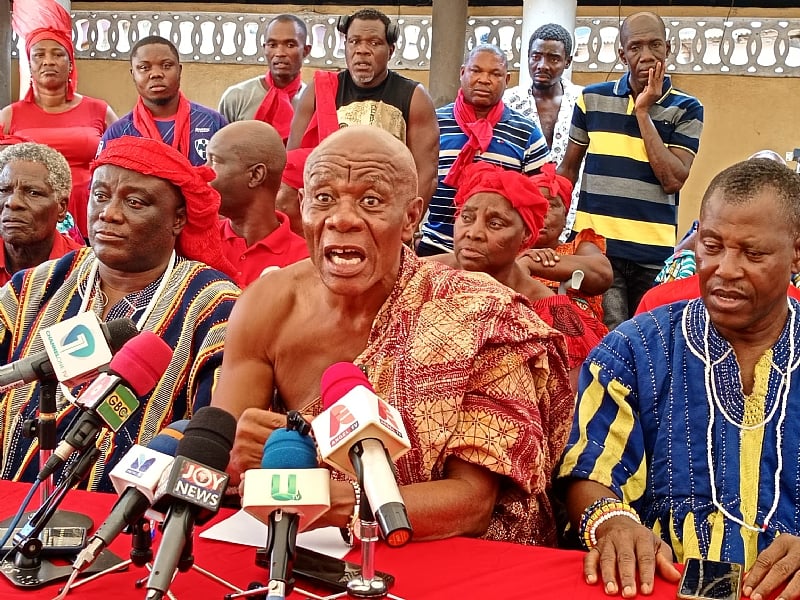The Tema Traditional Council (TTC) has voiced its displeasure over President John Dramani Mahama’s decision to nominate Ms. Ebi Bright as the new Tema Metropolitan Chief Executive (MCE), describing the move as a snub to the people of Tema.
Ms. Bright, a three-time parliamentary candidate for the National Democratic Congress (NDC) in Tema Central, was named as the first woman to lead the Tema Metro, a milestone that the council says comes at the expense of a longstanding request for an indigene to be appointed to the role.
Reacting to the announcement, the council conveyed its dissatisfaction with what it sees as a pattern of neglect by the NDC toward the interests of Tema natives.
Addressing the media, Nii Amarh Soumponu II, the Tema Shipi and Stool Secretary, highlighted the council’s disappointment. He noted that even though the Tema paramountcy oversees three assemblies, the council had only petitioned the government to reserve the Tema Metro seat for a native—a request they say mirrors appointments made in other coastal towns.
“All these places have indigenes appointed to the position, so we are unable to come to terms with how come Tema has been secluded from having one of its own assigned to this position. We are beginning to wonder whether we are being treated as foreigners on our land. Tema belongs to the people of Tema, so, if a situation arises where our neighbouring or sister towns are given such positions, and the government decides otherwise for us.”
Nii Soumponu further expressed that the situation is deepening a sense of marginalization, pointing to past sacrifices by the people of Tema, including the loss of farmlands to industrial development. He suggested that despite their contributions, they are being sidelined in critical decisions affecting their community.
He stressed it was disheartening to feel like second-class citizens on ancestral land and urged the government to reconsider how it engages with traditional authorities and indigenous populations.
The council also dismissed claims that they were hostile toward non-natives, clarifying their position.
“We are not fighting non-indigenous if that is so; we won’t have even accepted them as residents of Tema in the first place, but we want everyone to know that we are being treated unfairly on our own land.”
They concluded by emphasizing their commitment to peace, even as they called for fairness and recognition.
“We can’t fight the government; we won’t embark on violent activities, but we want them to understand that we are not happy with the way they have treated us.”


